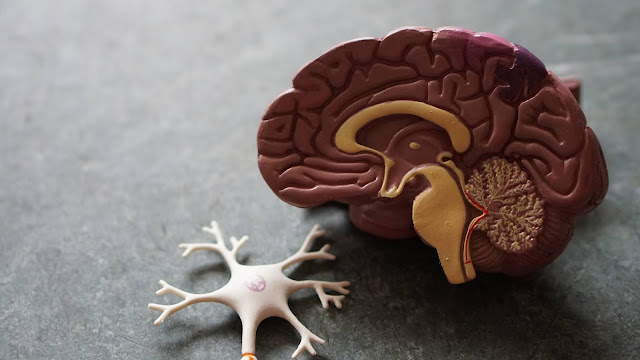HEALTHY HAPPY JOY - A blood clot is a blood clot caused by a change in the shape of the blood from a liquid to a gel-like or semi-solid state. This condition can occur anywhere, including in the brain. A blood clot in the brain, commonly known as a stroke , is a condition that blocks blood flow in the brain, which can kill brain cells.
However, not all blood clots can cause a stroke. Let's get to know more about blood clots in the brain, from symptoms, causes, to possible ways to treat them.
Recognizing blood clots in the brain
Quoted from the American Association of Retired Persons (AARP), cases of blood clots in the brain generally do not involve blockages, but in the form of bleeding that occurs outside the blood vessels of the brain.
However, this condition is also potentially dangerous because a blood clot can put pressure on the brain and cause confusion. The most severe conditions can even cause death in the sufferer.
On the other hand, when blood clots form in the veins, this condition becomes very dangerous and even life-threatening. Small blood clots in the brain can even cause an ischemic stroke. Therefore, you should immediately go to the hospital if you suspect a blood clot in the brain.
Symptoms and causes of blood clots in the brain
Blood clots in the brain do not always cause typical symptoms. Symptoms that appear may be similar to the symptoms of other diseases. The condition of blood clots in the brain can be determined with certainty through imaging tests, such as an MRI or CT scan .
Here are a number of symptoms of blood clots in the brain that can appear.
- Severe headaches that can occur suddenly
- Confusion
- Seizure
- Sudden speech disturbance or difficulty
- Sudden visual disturbance
- Weakness on one side of the body
- Difficulty swallowing, including swallowing water.
In addition, not all blood clots in the brain can cause a stroke. However, you should immediately consult a doctor if you feel the above symptoms because this condition can be cured if treated immediately.
In addition to understanding the symptoms, you also need to know the various possible causes of blood clots in the brain that you need to watch out for. Here are some possible causes of blood clots in the brain that can occur.
- Head injury or trauma
- Blood clots from other body parts
- Narrowing or hardening of the arteries due to plaque buildup ( atherosclerosis )
- Superficial vein inflammation.
How to treat blood clots in the brain
A blood clot that doesn't move is generally harmless, but a blood clot that breaks off and travels through a blood vessel can get stuck and block blood flow. This condition is a medical emergency and requires immediate help.
Likewise if you or a member of your family has had a stroke . The sooner treatment is carried out, the higher the chance that the blood clot in the brain will heal and increase the chances of survival.
There are several types of treatment for blood clots in the brain, including:
1. Thrombolysis
Blood clots in the brain such as ischemic stroke are often treated with the injectable drug alteplase, a type of blood fibrinolytic drug that can dissolve blood clots and restore blood flow to the brain.
2. Thrombectomy
A thrombectomy procedure can remove blood clots in the large arteries in the brain. This procedure is performed by inserting a catheter into an artery, then a small device is inserted through the catheter into a brain artery. The device can suck to remove blood clots in the brain.
In addition to treating blood clots in the brain, doctors can give drugs to prevent further blood clots in the brain, including:
- Anticoagulant drugs , which are drugs that function to prevent blood clots by changing the chemical composition of the blood so as to prevent the formation of blood clots in the brain. This medicine can help reduce the risk of developing blood clots in the future.
- Antiplatelet drugs, which are drugs that can help reduce the formation of blood clots in the brain. Examples are aspirin, clopidogrel, and dipyridamole.
- Blood pressure medication, which is a drug that serves to lower blood pressure in stroke patients who have high blood pressure.
- Statin drugs , which are drugs that are useful in reducing cholesterol levels in the blood by blocking enzymes in the liver that produce cholesterol. This drug may also reduce the risk of stroke.
The type of treatment to treat a stroke due to blood clots in the brain, depends on the type of stroke experienced. In an ischemic stroke, doctors may prescribe medication to prevent further blood clots, thrombectomy, or surgery to reduce pressure on the brain.
Meanwhile, if a blood clot in the brain causes a hemorrhagic stroke, the doctor may prescribe medication to reduce bleeding or medication to lower blood pressure. Surgery may also be needed to remove excess blood and repair blood vessels that have been damaged by a stroke.[*]

Komentar
Posting Komentar